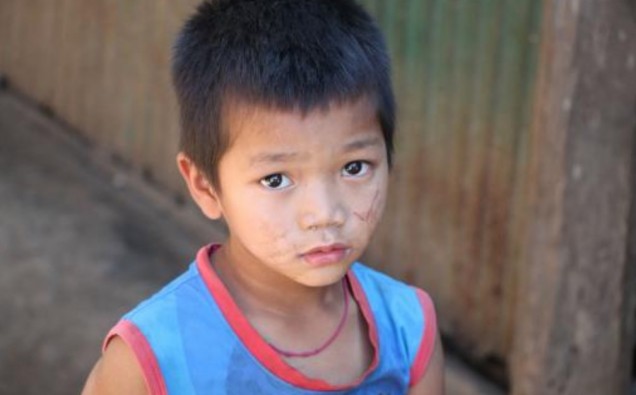While Burma’s state controlled media boast about “leaving no one behind” in their COVID-19 prevention campaign, the government and its security forces are drastically increasing the vulnerability of rural Karen — and other ethnic peoples — to the deadly virus.
· While the government is promising food to people impacted by COVID-19 in central Burma and urban centers, the Burmese military have burned down Karen villagers’ fields and rice barns, drastically reducing their chances of survival during the ongoing pandemic.
· While the government is promoting social distancing in Yangon and other cities in central Burma, the Burmese military have burned down the houses where Karen villagers could have protected themselves and maintained adequate water supplies for washing.
· The Burmese military have publicly rejected calls from ethnic armed organizations, ethnic political parties, civil society, and the United Nations for a ceasefire, and even in areas where ceasefires are in place, they are single handedly breaking them.
· International donors are providing aid to the central government for COVID-19, but at the same time the central government and the military are blocking aid in many ethnic areas.
· The Burmese government is actively blocking news from ethnic news groups, including Karen and Rakhine news groups.
· The real frontline responders in the ethnic areas are not the urban-based central government health personnel, but the ethnic health organizations who have been providing comprehensive care to their communities for decades. Funds for these organizations have been drastically cut by foreign donors in recent years. If the international community wants the ethnic peoples of Burma to survive the pandemic, this trend must be reversed.
The Burmese government and their security forces have recently launched a publicity blitz to highlight their belated efforts to halt the spread of the COVID-19 virus in Burma. They have announced a two-week lockdown in Yangon to prevent person-to-person infection. They have encouraged government health workers in the “front-lines”, including in the capital of Karen State, Hpa-an, to make and wear masks.
The government has been promoting Burmese language educational materials encouraging citizens to protect themselves by washing hands as well as promising to give food supplies to those who need it.
The Burmese military have even set up a special recovery hospital in Yangon for infected civilian patients to recover.
However, in rural Karen State, the actions of the government and military have been very different. Despite the fact that the Karen National Union has signed the “National Ceasefire Agreement”, under a process designed and led by the central Government and Burma Army, Burmese security forces are now conducting a full-scale military offensive in the KNU controlled area of Mutraw: torturing, killing and forcing Karen civilians from their homes and farmlands.
Since the end of January, when knowledge of the virus threat was already widespread in Burma, government forces have been shelling villagers in Mutraw township almost every day. 13 Battalions of the Burma Army have pounded 1,700 Karen people in 11 villages with hundreds of 60mm and 81mm mortar rockets and burned over 500 acres of their farmlands as part of their “cease-fire” operations. Karen villagers desperately searching for food outside their villages have been shot dead, or arrested and tortured.
It seems the Burmese government and the military see COVID-19 as an opportunity. While international attention is focused on the pandemic, the government is blocking aid and information in ethnic areas, while the military have a license to kill and bomb with impunity.
All these actions by the government and military show a glaring double standard: people in central Burma are to be protected during this pandemic, while those in ethnic areas are not only to be deprived of help, but bombed, killed and forced into conditions of heightened health risk.
We Karen are not alone in facing these double standards. This vindictive punishment in the face of the pandemic is also being meted out in Rakhine, Chin, and Shan States.
The millions of dollars of government funds being spent daily on these escalated nationwide military offensives is money that is needed to protect everyone in Burma from the pandemic.
While international donors must obviously provide urgent assistance at this time, they must ensure their aid is not subsidizing the government’s offensives against their own people.
We call on foreign donors to massively scale up direct support to the ethnic health organizations, as they struggle amidst the government’s military aggression to protect their peoples from the impending health crisis. Cuts in aid mean that refugees and IDPs struggle for basic necessities like a healthy diet, making them more vulnerable to illness.
Refugees and IDPs must be prioritized for international aid as they are living in conditions which make them one of the most vulnerable sectors of the population to COVID-19.
We also demand that the international community pressure the Burmese government and military to unilaterally stop their war in ethnic states and begin treating all citizens of Burma equally. International calls for a nationwide ceasefire must therefore be directed clearly and explicitly at the government and its security forces.




















